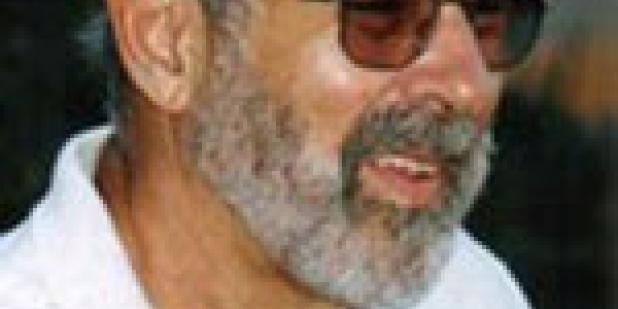Join us for a free one-day workshop for educators at the Japanese American National Museum, hosted by the USC U.S.-China Institute and the National Consortium for Teaching about Asia. This workshop will include a guided tour of the beloved exhibition Common Ground: The Heart of Community, slated to close permanently in January 2025. Following the tour, learn strategies for engaging students in the primary source artifacts, images, and documents found in JANM’s vast collection and discover classroom-ready resources to support teaching and learning about the Japanese American experience.
The Political Impact of China's Information Revolution
USC U.S.-China Institute Board of Scholars member Richard Baum to speak.
Where

Read report on talk or download Prof. Baum's paper.
Media liberalization is widely regarded as a bellwether of political development in China. Under Maoist rule, the PRC's mass media were tightly controlled by ideological watchdogs in the CCP Central Propaganda Department. While hopes for a more pluralistic, liberalized post-Mao media environment were raised briefly in the 1980s, these were dashed after the 1989 Tiananmen crackdown. At the end of 2006, Reporters without Borders ranked China 163rd in the world (out of 168 countries) in its annual Press Freedom Index-four slots lower than the previous year. Nor have the new electronic media-PCs, the Internet, and cell phones, once heralded as avatars of an irrepressible Information Revolution-proved immune from the controlling hand of the state. Yet beneath the day-to-day revelations of continuing media censorship, harassment of journalists, stringent regulatory barriers and the ubiquitous "Great Firewall of China," a quiet revolution is, in fact, taking place. The media environment in China today is far more complex, pluralistic and multi-layered than it was a mere decade ago. This paper examines recent developments in the print, broadcast, and Internet-based media with a view toward identifying key "agents of change" in the flow of information and analyzing their impact upon China's political development.
*****
*****
Richard Baum serves on the USCI Board of Scholars. He is a professor of Political Science at UCLA. He is author and editor of eight books on Chinese politics and numerous articles. During his 35 years on the faculty, he has held visiting scholar or professor appointments in China, Hong Kong, Japan, India, Sweden, and the Netherlands. He served as the director of UCLA's Center for Chinese Studies from 1999 to 2005.
Prof. Baum's recent work concerns (1) the impact of China's post-Mao reforms on local governance in the PRC; (2) globalization and political institutionalization in post-reform China; and (3) US-China relations and the prospects for war and peace across the Taiwan Strait. Dr. Baum has served on the editorial board of the Journal of Contemporary China, The China Quarterly, China Information, Asian Survey, and Communist and Post-Communist Studies. As a media commentator, Professor Baum shares his expert knowledge of Chinese Politics with CNN International, the BBC, NPR, the Asian Wall Street Journal, South China Morning Post, the Los Angeles Times, and the Voice of America (VOA).
Prof. Baum's paper will be posted to the website after his talk.
Featured Articles
Please join us for the Grad Mixer! Hosted by USC Annenberg Office of International Affairs, Enjoy food, drink and conversation with fellow students across USC Annenberg. Graduate students from any field are welcome to join, so it is a great opportunity to meet fellow students with IR/foreign policy-related research topics and interests.
RSVP link: https://forms.gle/1zer188RE9dCS6Ho6
Events
Hosted by USC Annenberg Office of International Affairs, enjoy food, drink and conversation with fellow international students.
Join us for an in-person conversation on Thursday, November 7th at 4pm with author David M. Lampton as he discusses his new book, Living U.S.-China Relations: From Cold War to Cold War. The book examines the history of U.S.-China relations across eight U.S. presidential administrations.




